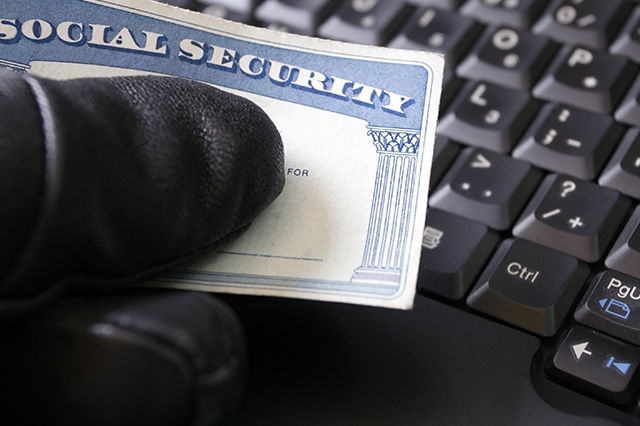How Should You Respond to the Theft of Your Identity?

Identity theft: it’s something you hope you’ll never have to worry about. (We hope you never have to either!) Whether on a personal level or as a business owner, the prospect of having your identity stolen is daunting— downright distressing, even. Whether you’re currently experiencing it, or you just want to be prepared, it’s worth asking: how should you respond to the theft of your identity?
First, how can you tell your identity has really been stolen? Here are some warning signs:
- Bills for transactions you didn’t authorize
- Your credit report shows information for accounts you didn’t open
- Denials of loan applications
- Calls from debt collectors regarding accounts you didn’t open
- Mail is missing from your mailbox, or stops coming to your mailbox altogether
If you notice these, or any other warning signs that your identity has been stolen, there are several steps you can take, and it’s important that you act fast!
Report
As soon as possible, you’ll want to report your incident to the following establishments/agencies:
Federal Trade Commission (FTC)
The FTC has a website specifically for identity theft where you can file a report, find resources relevant to your specific case, and even access the affidavit that will aid you in both getting an extended fraud alert on your credit report and in getting assistance from law enforcement if you so choose. You can also make a report via phone call at 1-877-438-4338.
Major Credit Bureaus
You can reach out to any one of the three major credit bureaus (Experian, Equifax, TransUnion) to place a fraud alert, and the other two will automatically be notified to do the same. A fraud alert requires lenders to verify your identity before they process any loan or credit card applications in your name. You can place a temporary alert, which lasts for one year, and can be dropped at any time by notifying each credit bureau individually. Or, you can place an extended alert that lasts for seven years. (The long term alert can only be placed if you have proof of making an identity theft complaint to law enforcement.)
Other Financial Institutions
It’s important to report the identity theft to any other financial institutions you notice fraudulent activity on, such as your bank and creditors.
Law Enforcement
The law enforcement agency you should notify will depend on the specific nature of your case. Experian has a handy chart that directs you to the appropriate agency based on the specific type of identity theft you’re experiencing.
While it may come as a surprise, filing a police report in response to identity theft isn’t always necessary. According to Experian, “you should file a police report… if you can provide evidence for the investigation, know the person or group responsible for the theft, or are asked for a report by a creditor or other entity.”
Freeze
In addition to placing a fraud alert with the major credit bureaus, you can also place a freeze on your credit report. Unlike with the fraud alert, however, you will have to notify each agency individually for a security freeze. Activating and deactivating a freeze can be done via phone, mail, or email. (Since time is of the essence in this situation, we recommend calling.)
It’s also a good idea to place a freeze on compromised accounts with any of your other financial institutions.
Recover
In some cases, reaching out to your bank, credit card company, etc. can result in getting your money back— whether it’s restoring money lost to unauthorized transactions, or waiving fees that were assessed to your account due to the fraudulent activity.
You also have the right to dispute credit report information with the major credit bureaus we mentioned earlier. In doing so, you can have unauthorized transactions and accounts removed from your credit history.
Monitor
The following are important to continue monitoring even after you’ve gotten a jump on combating the identity theft:
- Bank statements
- Credit card statements
- Credit report
- Social Security account
- Online IRS account
It’s important to continue monitoring all of your accounts and transactions because criminals don’t limit themselves to just one of these if they already have all the personal information they need to access others.
With your social security number and other identifying information, it is possible for an individual to fraudulently file a tax return. If notified using Form 14039, the IRS will mark your account and work to detect suspicious activity. Additionally, the IRS will aid in protecting your personal information after receiving a report of an incident. A PIN will be assigned to you, providing an extra layer of security for tax preparation and filing. It is important to notify your tax preparer about the PIN so that it can be used for E-File tax returns.
Prevent
Monitoring your accounts, statements, transactions etc. certainly helps you stay on top of things, but here are some more best practices to keep your accounts and personal information secure:
- Don’t answer suspicious emails/phone calls/texts from people you don’t know
- Place your mail on hold if you are going out of town or will be otherwise unable to collect it for an extended period of time
- Update passwords regularly with stronger, more complex passwords
- Use multi-factor authentication
- Enable fingerprint or face recognition when possible
- Use a VPN
- Subscribe to a cyber protection service
- Buy cyber crime insurance for your business
Know You’re Not Alone
If you are a victim of identity theft, Money Mastery can help you pick up the pieces. We offer assistance with a variety of financial fraud and theft issues. Please send us a message or give us a call at 833-MASTER-5 so we can start helping you today!